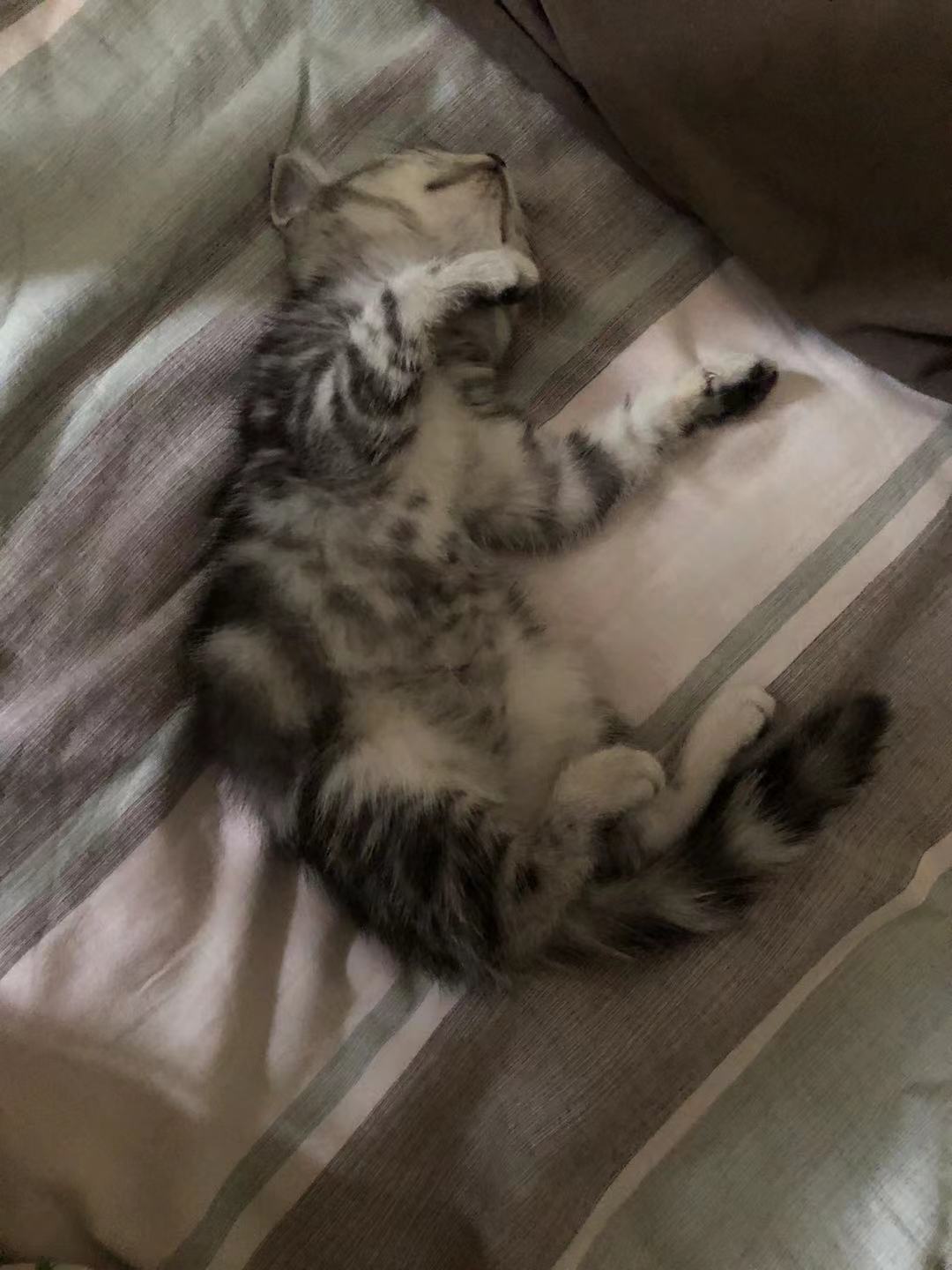【记录】梅西 - 一个犬人, 一个病人
作者:Hernan Casciari
翻译:Pan7y
原文链接:梅西有多强
说明:
1.原视频来自油管MTB的Messi is a Dog, a Sick Man || 一位阿根廷作家在看了梅西被犯规的集锦之后,写了一篇文章回答他为什么不愿意离开巴塞罗那。Reddit的网友将它翻成英文,而后MTB请人将它读了出来作为旁白并制作了这个视频。
2.足球发展到如今,能打动人心的东西越来越少,梅西的特质在这个浮躁夸张的当下,显得弥足珍贵。他是唯一的最佳,活着的传奇,年轻的大师,真正的球王。此文的视角极好,字幕组做的翻译也不错,所以我选择一句句听,手打下全文。
快速的回答是:因为我的女儿、因为我的妻子、因为我的家庭来自加泰罗尼亚,但是若要我扪心自问为什么我依然在这里,在巴塞罗那,在这糟糕透顶又百无聊赖的时代,答案将是:因为我离历史上最棒的足球只有四十分钟火车的路程——我是说,如果我的妻儿决定现在要去阿根廷生活,我会离婚并留在这里,至少在欧冠决赛之前。因为这个世界从来没有在足球场内见这样的历史,任何年代都没有,而且它也很可能将不再发生。这绝非妄言,我的确是在一个特殊时代提笔,在我写下文字的这个星期,梅西为阿根廷踢进三球,在欧冠中为巴塞罗那踢进五球,在联赛中踢进两球。三个不同赛事,三场不同比赛,十个进球。加泰罗尼亚的媒体对其他事情都漠不关心,有那么一阵,经济危机再也不是新闻头条谈论的话题,网络上爆炸了一般。身处其中,一个想法跃进我的脑海,一个非常奇怪、难以理解的想法。正是这个想法促使我捉笔,看看我是否可以将它清晰地呈现出来。
一切都是从今天早上开始的,我正在YouTube上浏览着那些看不完的梅西进球集锦,我这么做有些心虚,因为我正在编辑Number6杂志,不行该不务正业。无意之中,我点进了一个之前没有看过的集锦,我原本以为它和其他成千上万集锦没有什么区别,但很快我就发现事实并非如此,这个集锦不是梅西进球的片段,不是他最好的盘带、最好的助攻。这是个奇怪的集锦,视频里有数个片段,每个只有两三秒,在这些片段里,梅西遭受了各种侵人犯规,但却没有倒在地上。他不会跳水假摔,不会抱怨,也不会故意去要一个任意球或者点球。在每一帧里,他都努力找回平衡,眼神却一刻也不离开足球,他用几乎非人类的努力,来确保比赛不被吹停,或者对方球员不会得到一张黄牌。那些短小的片段里有许许多多暴力的踢人、阻挡、踩踏、犯规,粗鲁的铲球、拉扯衣服,我从来没有看过这些犯规被放到一起。他带球时被人踢到胫骨,但仍然继续奔跑;他被人踢在脚踝上、踉跄着,仍然继续奔跑;他被防守队员大力拉扯着球衣,他挣脱开来,仍然继续奔跑。
突然之间,我被震在那里,因为这些画面里有某些熟悉的东西——
我用慢动作重放着这些镜头,意识到梅西的眼睛在意的就只有足球,而不在乎竞技比赛,不在乎场合环境。如今的足球,有着相当严格的规则,按照这些规则,倒地很多时候意味着得到一个点球,或者让对方球员得到一张黄牌,这些在将来的反击中会派上用场。在这些片段里,梅西似乎对“足球”或者“机会”一无所知,他像是着了魔,被催了眠,他只想要皮球打进球门,他不关心竞技,不关心结果,不关心规则。你只有仔细地观察他的双眼才能明白,他眯缝着眼睛,就像是在努力看清一条字幕,他全神贯注盯着那皮球,就算有人对他刺伤一刀也绝不离开视线。我之前在哪里见过这样的眼神,他看起来如此熟悉,那种深陷在自己的世界里心无旁骛的样子。
我暂停视频,放大了看他的双眼,然后我记了起来——为了一块海绵而痴迷的Totin(小狗的名字)的双眼,也是如此。当我是一个孩子时,我有一条叫做Totin的小狗,没什么能让他在意。他也不是一条聪明的狗,有贼人破门而入,他就这么瞧着他们把电视偷走;门铃响了他也充耳不闻,我如果呕吐,他也不会过来舔净脏污,但是只要有人,无论是我母亲、我姐姐或者我自己,拿着一块海绵,一块黄色的海绵来清洗盘子,Totin就好似疯了一样。他想要那块海绵,这世界上的任何东西都不能与之相比,只要能把那块黄色的长方形软快带回他的狗窝,他死也心甘情愿。我给他看我握着海绵的右手,他就就紧紧盯着它;我来回晃着手,他的视线也随之移动,他就是无法移动视线一分一毫。不管我晃动的速度有多快,Totin的脖子会以相同的速度跟着海绵走,他的眼神变得敏锐而灵动——就像是梅西的眼睛,不再是一个浮躁懵懂的少年的双眼。
有那么几秒,他们变得如同福尔摩斯的双眼版锐利,看到这个视频,我今天才恍然发觉,梅西一头幼犬,或者说,他是一个犬人。这就是我的想法,抱歉花了这么久才说清,你们所期望听到的可能远不止如此。梅西是踢足球的第一位犬人。很多事都能说得通了,他不在乎规则,或者他根本就不真正明白那些规则存在的意义。犬兽们不会在看到一辆车朝自己开过来时假摔倒地,也不会在猫咪从自己手中逃脱时找裁判申诉,他们不会想让垃圾车被黄牌警告。一开始,踢足球的人类也是如此,他们为了那个皮球而踢,别无其他,红黄牌根本不存在,没有越位,客场球也并不比主场球更有分量。
一开始,人们就像是梅西和Totin一样踢球,后来,一切都变得奇怪起来。现在,每个人似乎都更关心这项运动的官僚机制,关心它运转的法则。一场重要的比赛过后,人们会花上一个星期的时间谈论它是否合乎规则,juan是不是故意被黄牌,这样就能错过下场比赛参加国家德比。Pedro是不是真的在禁区内假摔,208条规定说Ernesto要为U-17比赛,他们会向之前宣布的那样让pancho上场吗?教练是不是下令往球场过度洒水,好让对手们滑倒摔个脑袋开花,球童是不是在比赛2-1的时候消失了,在2-2的时候又出现了。俱乐部会为paco的两张黄牌申诉吗?Richard抗议Ignacio因为Luis在发球之前拖延而损失的那些时间,裁判给的补时合理吗?
不,先生,犬兽们不会听收音机,他们也不读新闻,他们不懂得这场比赛是五官轻重的友谊赛,还是争夺冠军的决赛,他们只想要拿到那块海绵回到自己窝里,就算疲劳会让他们力尽而亡,就算虱子会令他们疼痛而死。
梅西是一个犬人,他打破了其他时代的记录,因为犬人仅仅得以踢球到50年代,之后,FIFA将人类邀请进来,大肆谈论规则和条款,而我们都忘了那块海绵有多么重要。有一天,一个生病的男孩出现了,就像是那天,一个生病的猴子直立起了身子,开启了人类的历史。这一次,是一个来自罗萨里奥的孩子,带着明显的身体缺陷,他说话磕磕碰碰,举止笨拙而害羞,身上找不到任何人类所有那些狡猾的影子。但是他有着让人惊艳的天赋,他控制着那个圆滚滚的膨胀物,把它带进绿茵场另一头的球网里。如果人们允许,他不会做别的任何事,他会永不知倦地将那个白色的皮球送进三根白色边框中间的地方,就像是西西弗斯,一次又一次。
在梅西单场打进五个进球的比赛之后,瓜迪奥拉说,他愿意的那天,他能够打进六个。这不是奉承,这是对疾病症状的客观描绘,里奥内尔·梅西,是个病人。打动我的是一种疾病,我很爱Totin,而梅西是最后一个犬人。我想要观察这疾病,想要在每个周六看着这疾病更入骨髓一层,这就是为什么尽管我更想住在别的地方,但却依然留在巴塞罗那。
每次我走上诺坎普球场的台阶,突然之间看到明亮的球场传来刺眼灯光,那个瞬间总让我想起我们的童年,我总会对自己说同样的话,你真的是非常幸运,Jorge,可以这么爱一项运动,又活在它最好的时代里。更重要的是,那片见证一切球场离你如此之近,我享受我的双重幸运,这是我的宝藏。每当梅西上场,我已然开始怀念当下。历史长河中这一刻,大千世界这一处,让我变得疯狂。
我想,这是因为在最后的审判日来临那天,所有活在这世上的人,都会聚在一起,谈论足球。有人会说,1979年我在阿姆斯特丹求学;有人会说,1962年,我在圣保罗做建筑师;还有会说,1987年,我是个身在那不勒斯的少年;我的父亲会说,1967年,我在蒙得维的亚游历;他之后的人说,我倾听过1950年马拉卡纳的寂静。
每个人都会满怀自豪地讲述着自己经历的战斗,直到夜色深沉。故事已经道尽,我会站起身子,慢慢地开口,我生活在巴塞罗那,生活在那犬人的年代,全场会鸦雀无声,每个人都会底下脑袋,而上帝将会出现,身着最后审判日的盛装,指着我说,你,那个小胖子,你被救赎了,其他人,都下场吧。
原文:
The quick answer is: because of my daughter, because of my wife, because my family is from Catalonia. But if I had to answer with honesty why I'm still here, in Barcelona, in these awful and boring times, it would be: because I'm forty minutes in train away from the best football in history.
I mean, if my wife and daughter decided to go to live to Argentina right now, I would divorce and stay here, at least until the Champions League final. Because the world has never seen something like this inside a football pitch, in no era, ever, and its very likely that it will never happen again.
It's true, I'm writing this at a special time. I'm writing this in the same week that Messi scored three goals for Argentina, five for Barcelona in the Champions League and two for his club in La Liga. Ten goals in three games of three different competitions.
The Catalan press doesn't talk about anything else. For a little while, the economic crisis isn't the subject in the front-page of news. Internet explodes. And in the middle of this, a theory just passed through my head, a very strange, hard to explain theory. That's why I'll try to write it, to see if I can finally grasp it fully. It all started this morning: I'm looking non-stop at Messi goals in YouTube. I'm doing it with guilt because I'm in the middle of the editing of the magazine number six. I shouldn't be doing this. Casually, I click in a compilation of clips I've never seen before. I think it's another video like other thousands of thousands, but I soon realize it's not. The clips are not Messi goals, his best runs, nor his assists. It's a strange compilation: the video shows hundreds of clips, two or three seconds long each, in which Messi receives strong fouls and doesn't fall to the ground.
He doesn't dive or whine. He doesn't intentionally look to gain a free kick or a penalty. In each frame, he keeps his eyes in the ball while he struggles to find balance. He makes inhuman efforts for the play to not be stopped, nor the opposite player to get a yellow card.
They are a lot of little clips of fierce kicks, obstructions, stamps and cheating, reckless tackles and shirt grabbing; I've never seen them altogether. He goes with the ball and receives a kick in the tibia, but keeps going. He gets hit in the ankles: stumbles and keeps going. He gets his shirt grabbed and pulled by a defender: he frees himself and keeps going.
Suddenly, I was stunned, because something was familiar for me in those images. I replayed each frame in slow motion and understood that Messi eyes are always concentrated in the ball, but not in the sport, nor in the context.
Football, today, has very clear regulations by which, a lot of times, going to the ground could mean securing a penalty, or getting an opposition player booked, because it could be useful in later counter-attacks. In these clips, Messi seems to not understand anything about football or about opportunities.
It seems like he's in a trance, hypnotized; he only wants the ball inside the goal. He doesn't care about the sport nor the result nor the laws. You have to look carefully in his eyes to understand it: he squeezes them, like if he was struggling to read a subtitle, he focuses on the ball and doesn't lose sight of it not even if he would get stabbed.
Where did I see that look before? It looked familiar to me, that gesture of unmeasured introspection. I paused the video, zoomed into his eyes and then I remembered: the eyes of Totin when he lost his mind for the sponge.
When I was a child I had a dog called Totin. Nothing moved him. He wasn't an intelligent dog. When thieves broke into the house, he just looked at them while they carried the TV away. The doorbell sounded and he didn't seem to have heard it. I puked and he didn't come to lick it.
But when somebody (my mother, my sister, myself) grabbed a sponge -a yellow sponge to wash the dishes- Totin went mad. He wanted the sponge more than anything in the world, he died for taking that yellow rectangle and carry it to his dog bed. I showed him the sponge with my right hand and he focused on it. I moved it side to side and he never stopped looking at it; he couldn't stop looking at it.
It didn't matter the speed at which I moved the sponge; Totin's neck would move at identical speed through the air. He's eyes turned into attentive, intellectual eyes. Like Messi's eyes , which stop being the eyes of a scatterbrained teenager and, for a few seconds, turns into the attentive sight of Sherlock Holmes.
I discovered today, watching that video, that Messi is a dog. Or a dog-man. That's my theory, I'm sorry that you made it this long with better expectations. Messi is the first dog that plays football.
It has a lot of sense that he doesn't care about the rules, maybe he doesn't even understand them. Dogs don't fake and dive when they see a car coming in their direction, they don't complain to the referee when a cat escapes them, they don't want the garbage truck to be booked. In the beginning of football the humans were like this too. They went for the ball and nothing else: coloured cards didn't exist, nor the offside rule, nor the away goals were more important than the home ones. In the beginings, people played football like Messi and Totin. Afterwards, everything got very strange.
Right now, everybody seems to care more about the bureaucracy of the sport, its laws. After an important game, people take a week long to talk about the legislation.
Did Juan get booked purposefully so he could miss the next game and play El Clasico? Did Pedro really fake the foul inside the penalty box? Will they allow Pancho to play as stated by the clause number 208 that says that Ernesto is playing for the U-17. Did the coach order to over-water the pitch so the opponents would slip and break their cranium? Did the ballboys disappear when the game was 2-1 and appear again when it was 2-2? Will the club appeal Paco's double yellow card in the tribunal? Did the referee correctly add the minutes that Ricardo lost by protesting the sanction that Ignacio received because of Luis time wasting before the throw in?
No, sir. Dogs don't listen to the radio, don't read the news, don't understand if a game is an unimportant friendly or the final of the championship. Dogs want to take the sponge to their dog bed even if they are tired to death or if the mites are killing them in pain.
Messi is a dog. He breaks records of other times because only until the 50's the dog-men played football. Afterwards, the FIFA invited us to talk about laws and articles, and we forgot how important the sponge is.
And one day a sick boy appears. Like the day a sick monkey stood upright and Mankind history started. This time, it was a kid from Rosario with, apparently, some disabilities. Unable to say one phrase after another, visibly awkward, unable to almost anything related to human guile. But with an impressive talent to keep and control something round and inflated and take it to the net at the end of a green prairie.
If people let him, he wouldn't do anything else. Take that white sphere and put it in between the three posts all the time, like Sisyphus. Over and over again. Guardiola said, after the game in which he scored five goals in a single game: "The day he wants, he will score six"
It wasn't a compliment, it was the objective expression of the symptoms. Lionel Messi is a sick man. It's an illness that moves me, because I loved Totin and now Messi is the last dog-man. And to watch attentively that illness, to see it evolve every Saturday, that's why I'm still in Barcelona even though I'd prefer to be living somewhere else.
Every time I climb the Camp Nou stairs and I suddenly see the brightness of the lightened pitch, that moment that always remind us of our childhood, I say the same thing to myself: you have to be really lucky, Jorge, for liking so much a sport and be contemporaneous of its best version and, on top of that, that the pitch where it happens is so close to you.
I enjoy my double luck. It's my treasure, I'm nostalgic of the present moment every time Messi plays. I'm fanatic of this place in the world and this historic time. Because, I think, on Doomsday all the men that have ever lived will be congregated to talk about football, and one will say: I studied in Amsterdam in 1979, other will say: I was an architect in Sao Paulo in '62, and other one: I was a teenager in Napoli in '87, and my father will say: I travelled to Montevideo in '67, and other one behind him: I listened to the silenced Maracana in 1950.
Everybody will tell their battles with pride until the night is old. And when nobody is left, I will stand and say slowly: I lived in Barcelona in the times of the Dog-Man. And there will be silence. Everybody else will lower their head. And God will appear, dressed for the occasion, and pointing at me will say: "you, the little fat one; you are saved. Everybody else, to the showers."



0